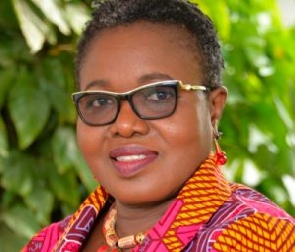In 2015, all Member States of the United Nations adopted the 2030 Agenda for Sustainable Development which has at its core the 17 Sustainable Development Goals (SDGs) which are an urgent call for action by all developed and developing countries in a global partnership.
In this, they recognized that ending poverty and other deprivations must go hand-in-hand with strategies that improve health and education, reduce inequality, and spur economic growth – all the while tackling climate change and working to preserve our oceans and forests.
While according to reports that countries like Finland, Sweden, Germany, and France are making strides with the various SDGs, not much has been done in Africa though the world has less than ten years to the 2030 agenda for the SDGs.
It is because of this that there is a call for ambitious actions to speed up progress, and African Universities are believed to have a role to play in this.
The Director of the Institute of Health Research at the University of Health and Allied Sciences, Professor Margaret Gyapong made the call while delivering her keynote address at the University of Cape Coast 7th Research Awards and Grants (RAG) ceremony held on Wednesday 16th November 2022.
“We used to hear about health for all by the year 2000. And that was all everyone was talking about. And we thought that as soon as the bell on the eve of 2000 rang, everybody will be healthy and there will be no problems. But what did we find? Still the raving problems. And so other goals had to be set. And this time, the Sustainable Development Goals, We started in 2015. We have less than ten years to the 2030 agenda. But we don’t see much progress in Africa and I’m asking myself why?” she questioned.
As such, she urged African Universities as part of intensifying efforts to achieve the SDGs in Africa and the world at large, to come up with sustainable research which can solve real developmental problems.
“They need practical solutions, not theoretical ones. They need solutions that relate to the problems that they identify as they deliver the various interventions in the field.” She continued.
Professor Margaret Gyapong further indicated the contributions UCC can make in helping to achieve the Sustainable Development Goals by 2030.
To her, it is not out of place that the SDG’s manual states that although the SDGs aren’t focused on higher education, the achievement of the Sustainable Development Goals by 2030 will require all hands on deck by pooling financial resources, knowledge, and expertise and this must include the resources of universities and higher education.
To this end, she notes the University of Cape Coast must produce future leaders who are SDG contributors, implementers, and evaluators.
“I want to tell UCC that you can do this because you are collecting the data and we want to see you in that ranking when it opens again next year.” She added.
General News of Saturday, 19 November 2022
Source: atlfmnews.com

















